Second Half Of 2021 Saw Jump In Iran Executions
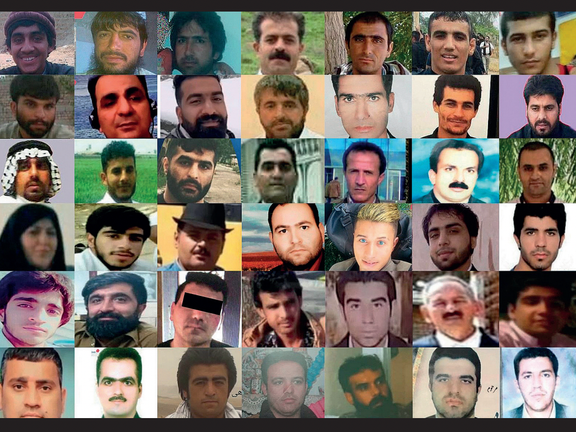
The number of executions in Iran doubled in the second half of 2021 -- around the time when President Ebrahim Raisi took office -- according to figures compiled by two advocacy groups.

The number of executions in Iran doubled in the second half of 2021 -- around the time when President Ebrahim Raisi took office -- according to figures compiled by two advocacy groups.
Annual Report on the Death Penalty in Iran 2021, published by Oslo-based Iran Human Rights (IHRNGO) and Paris-based Ensemble Contre la Peine de Mort or ECPM (Together Against the Death Penalty), highlighted the rise in numbers and a lack of transparency in both procedures and legislative framework.
The report said at least 333 people were executed in 2021, two thirds in the last six months. This was up from 267 in 2020, with at least 183 executions (55 percent) in 2021 for murder and at least 126 for drug-related offenses. At least two juvenile offenders and 17 women were among those executed.
"The execution rate accelerated after the election of Ebrahim Raeisi as president in June, and doubled in the second half of 2021 compared to the first half", the report said.
At least 139 followed sentences passed by Revolutionary Courts, which have different procedures to other courts, bringing the total of such cases to over 3,758 since 2010.
The report said that 278 executions in 2021 were un-announced by the authorities, and that other executions had not been included due to researchers’ inability to confirm facts.
For the first time in over 15 years, no public executions were reported in 2021 as Iran halted the practice due to Covid-19 restrictions. After a lapse of around 18 months, three sentences of public execution have been passed since March.
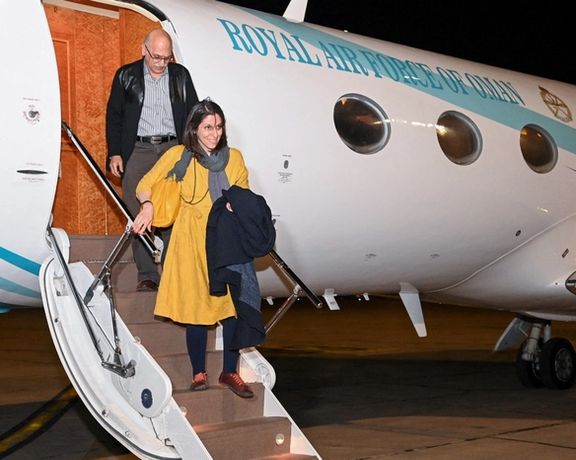
Iran's Central Bank Governor said Wednesday Tehran has already received the £400 million paid by Britain before the release of two British-Iranian detainees and the funds are being used.
"We have already received the money paid by Britain and the funds are even being used," Ali Salehabadi, governor of the Central Bank of Iran (CBI) told reporters. "Information on the [release of the] rest of [Iran's] blocked sums will gradually be provided. Generally, the work is progressing well," he said without any further details on the sidelines of a cabinet meeting Wednesday according to the official news agency IRNA.
Salehabadi made the remarks hours after a report by UK's The Guardian which quoted a senior Iranian government source as saying that the £400m was still blocked in Oman. The official told the Guardian that the problem was not with the UK government.
Speaking to Entekhab news website Sunday, Mahmoud Abbaszadeh-Meshkini, spokesman of the Iranian parliament’s national security and foreign policy committee, had also said that Britain's £400m debt was "released at the source", adding that the transfer, presumably to an Omani bank, had not been problematic.
The important matter was to release the frozen money from the source country, Britain, he said, adding that he believed further stages -- meaning transferring the money to Iran from Oman – could not cause any problems.
Neither the CBI governor, nor Abbaszadeh-Meshkini, elaborated on the nature of the difficulties expected in repatriation of the funds from Oman which they only referred to as a "regional" or "neighboring" country.
"The extent of the hold-up is not clear, and it is unknown whether it is due to a banking problem in Oman or another issue, such as the limits set on the use of the money by the British," The Guardian wrote.
Britain owed the £400m ($530m) to Iran for 1,750 Chieftain tanks and other vehicles purchased before the Islamic Revolution of 1979 almost none of which were delivered.
On March 16, British Prime Minister Boris Johnson announced that two British-Iranian dual nationals detained by Iran had been freed and would be returning home. Simultaneously, some Iranian state-affiliated media, including the Revolutionary Guards (IRGC)-linked Fars news agency, reported that the two detainees had been freed in exchange for Britain's £400m historical debt to Iran.
The British and Iranian governments both claimed there was no connection between the debt and the case of detained individuals.
According to the Guardian, "one report" said only £1m of the money had been transferred to Tehran.
Muscat mediated for the release of the two UK detainees, Nazanin Zaghari-Ratcliffe and Anoosheh Ashouri, who were freed after the funds arrived in an Omani Bank.
The Guardian also said there had been speculation that London may be withholding full release of the funds because it believes Iran has not kept its side of the negotiated bargain that should have allowed a third detainee Morad Tahbaz indefinite leave from prison. He was briefly released and then returned to prison.
The UK Foreign Office has stressed that the payment, made on the condition that it would be used only for humanitarian purposes, “was made in full compliance with UK and international sanctions and all legal obligations”. Iranian officials have said that Tehran has "full control" on how to spend the funds without a mention of the conditions set by Britain.
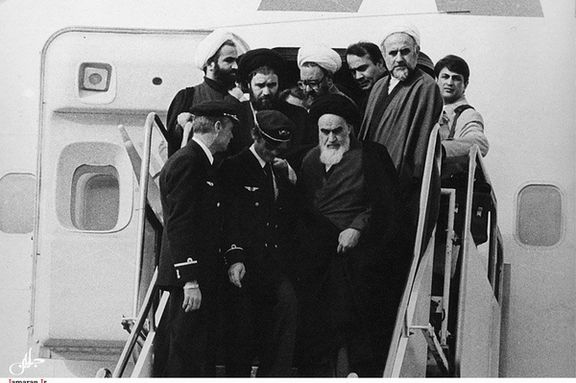
Iranian investigative journalist Hossein Dehbashi has been exonerated in a lawsuit filed against him for saying that the son of the founder of the Islamic Republic died of "drug abuse".
Dehbashi said in a tweet on Wednesday that the complaint by the institute for the works of Ruhollah Khomeini as well as his grandson Hassan for publishing lies and insulting Ahmad Khomeini was rejected.
In February, he tweeted the picture of Ruhollah Khomeini disembarking from a plane in Tehran in February 1979, after a 15-year exile, explaining what happened to those who accompanied him on the flight.
In the post, Dehbashi had said that the reason for Ahmad Khomeini's death was "drug abuse", which led to a barrage of criticism against him.
He later deleted the post but said in reaction to critics that he heard the allegation from Akbar Hashemi Rafsanjani, who was the most influential man in the Islamic Republic, second only to Supreme Leader Ali Khamenei.
Khomeini's son, Ahmad, who also accompanied his father in the return journey and was his confidant until the ayatollah's death, died in a mysterious incident in 1995 that was reported as a heart attack.
Another journalist, Emadeddin Baghi, quoted regime insiders as having said that former deputy intelligence minister Saeed Emami had confessed to Ahmad Khomeini’s killing.
Emami was also accused of having independently organized the "chain murders" -- a series of 1988–98 murders and disappearances of Iranian dissident intellectuals who had been critical of the Islamic Republic.

A member of parliament says the shortage and high prices of medicines in Iran are not limited to certain drugs anymore, and very common medications are also scarce and expensive.
Homayoon Sameh Yeh Najafabadi, who is a member of the parliament's health committee, told ILNA on Wednesday that “today medicine has become very scarce in the country, not special medicines but very ordinary medicines. Therefore, people have to go to several pharmacies for one prescription”.
Criticizing those who claimed to be able to control the prices of medicines, he added that the Health Ministry should have devised a detailed plan for controlling the prices before submitting the budget bill to parliament.
Many officials from the Health Ministry appeared before the parliament and said there would be no problem with the high cost of medicines because the insurance companies would cover the higher in prices, and that there won’t be any pressure on patients once subsidy for imports of essential goods are eliminated, Najafabadi said.
The lawmaker said in addition to medicines, the prices of wheat, flour and bread have also increased, expressing hope that the government has a plan in this regard.
In March, the parliament decided to scrap an annual $9-14 billion subsidy for essential food and medicines, despite warnings of more inflation and hardship.
The subsidy was introduced in April 2018 when former US president Donald Trump signaled his intention to withdraw from the Obama-era nuclear agreement with Iran known as JCPOA, and Iran’s national currency began to nosedive.
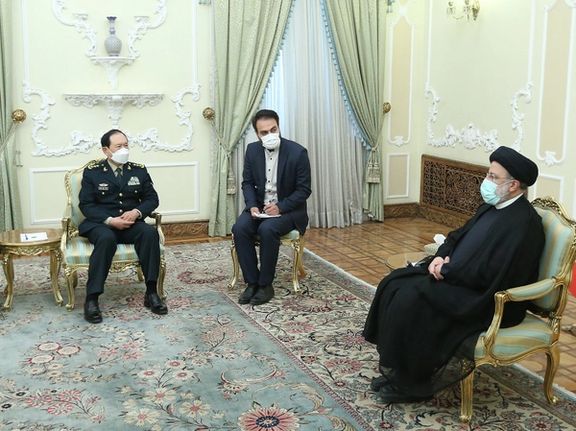
General Wei Fenghe, Chinese defense minister, has on his visit to Tehran condemned United States “unilateralism” and called for greater cooperation between “independent” countries.
During a meeting with Iranian counterpart Mohammad-Reza Gharaei Ashtiani, Wei attributed Wednesday much of the world’s insecurity and wars to US “hegemonic” actions, according to the account given by the official news agency IRNA.
China is one of the world powers in year-long talks trying to revive the 2015 Iran nuclear deal, which the US left in 2018. Beijing has been gradually increasing its commercial and even military presence in the Middle East.
“The common security challenges and threats can be combatted through interaction and cooperation among the independent countries that are opposed to unilateralism in the world,” Wei noted. He said that closer ties between Iranian and Chinese armed forces, who conducted their first trilateral naval exercises with Russia in 2019, would help thwart such challenges and in fighting ‘terrorism.’
Ashtiani described US policies as the root cause of growing crises and said multilateralism was needed as a counter. He highlighted Iran’s policy of developing ties with neighboring and Asian countries.
The Chinese defense minister also met with Iranian President Ebrahim Raisi, and with Chief of Staff of the Iranian Armed Forces Major General Mohammad Hossein Bagheri.
"We pursue strategic relations in accordance with mutual political trust regardless of international developments," Raisi said, noting that “successful implementation” of Iran’s 25-year strategic agreement with China, signed March 2021, was a priority.
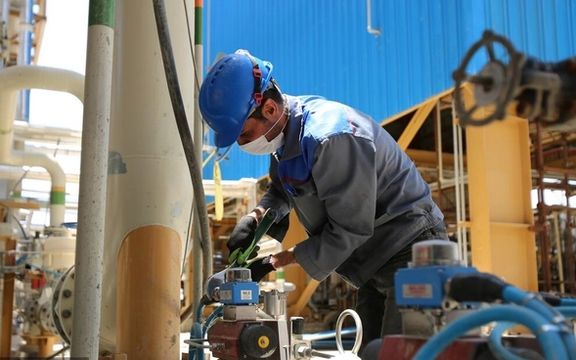
Figures released by the Customs Organization show that last year Iran exported gasoline at an average price of 38 cents per liter, lower than even crude oil.
Speaking to Shargh newspaper, Spokesman of the Customs Organization Ruhollah Latifi said Iran's daily gasoline exports averaged 5.3 million liters in the previous Iranian calendar year. Annual revenues from selling gasoline amounted to $732.6 million, around 38 cents per liter, he said, referring to the Iranian calendar year which ended on March 20.
In 2021, according to OPEC figures, crude oil sold for around $78 per barrel which puts the price of one liter of crude at around 49 cents, higher than the price of gasoline, Shargh's Maryam Shokrani wrote.
Latifi told Shargh that nearly half of all gasoline exports -- at around 39 cents and a total of $244.6 million -- were made in the last month of the year (February 20 to March 20). These figures show that despite the spike in international prices of crude oil and gasoline in March, Iran's gasoline sold at the same rate as before.
Mostafa Nakhaei, spokesman of the parliament's energy committee also told Shargh that the parliament had received reports that in the one-year period from March 21, 2020, gasoline had sometimes been exported at prices as low as 5,000 rials, one-third of its subsidized domestic price – an incredible two US cents per liter or around 10 cents a gallon. ($1=280,000 rials)
Why so cheap?
Bulk gasoline prices in the Persian Gulf region were above 80 cents a liter in this period.
Unlike crude oil, gasoline exports are not sanctioned by the United States, and it is not clear why Iran sold the refined product so much cheaper than international prices.
One explanation can be the desperate need for cash dollars as international banking transfers are out of question amid American banking sanctions. It could also be due to shadowy middlemen and networks handling most of Iran’s fuel exports who take substantial cuts and reduce government revenues. Some of these middlemen are people well connected with top officials, as previous scandals from early 2010s revealed.
As the news emerged on Wednesday some Iranians began commenting on social media that in 2019 the government suppressed protests to a hike in fuel prices by killing hundreds of people while it is ready to export gasoline at two cents a liter.
Nakhaei said that some lawmakers have demanded a probe into the export of gasoline at such low prices and the loss the oil and refinery industries have incurred because of that. "Apparently the government only endeavored to raise the gasoline export figures at any cost," he said.
More oil exports with no visible impact
Officials of the government of President Ebrahim Raisi have repeatedly boasted that they have succeeded in raising oil exports by as much as 40 percent despite sanctions imposed by the US in 2018 when Donald Trump pulled the US out of the 2015 nuclear deal with Iran. They also claim that they are now even fully repatriating the revenues from oil sales.
Many Iranians ask why they can see no change in economic indices despite increased oil exports and repatriation of revenues as the government claims, especially with very high fuel prices since the invasion of Ukraine.
An informed source in oil ministry on Tuesday told the government mouthpiece, Iran newspaper, that the reason for not being able to experience any prompt effect of the money coming into government coffers from oil sales was that it takes 90 days to receive the payments from buyers.
But the government claim about higher oil exports goes back to all of 2021, not just the last three months.